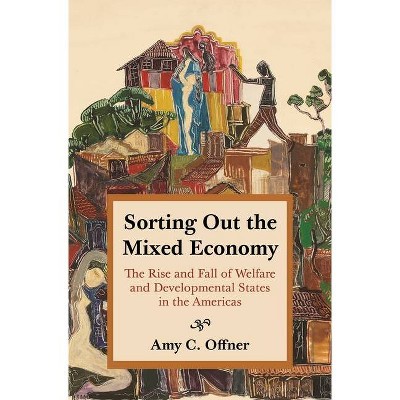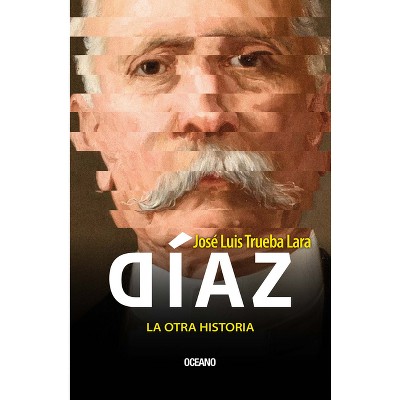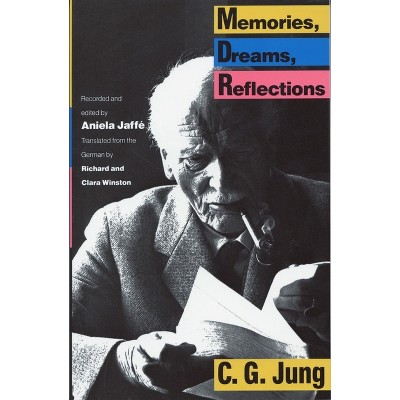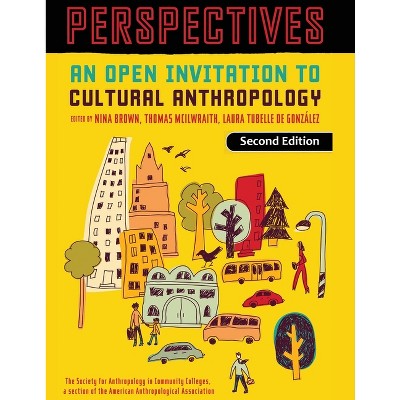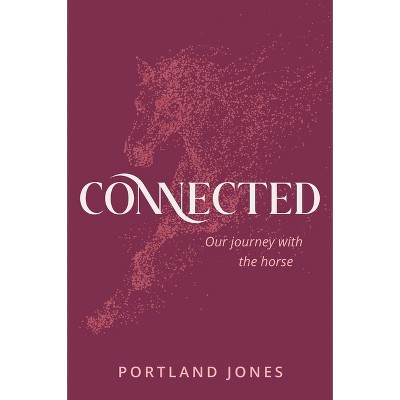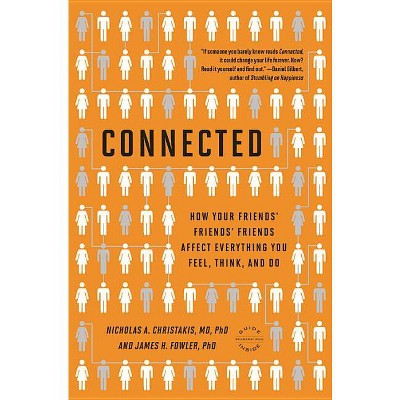Sponsored

Connected - by Roberto J González (Paperback)
$29.95
In Stock
Eligible for registries and wish lists
Sponsored
About this item
Highlights
- This is the true story of how, against all odds, a remote Mexican pueblo built its own autonomous cell phone network--without help from telecom companies or the government.
- About the Author: Roberto J. González is chair of the Department of Anthropology at San José State University.
- 274 Pages
- Social Science, Anthropology
Description
About the Book
"This is the true story of how, against all odds, a remote Mexican pueblo built its own autonomous cell phone network--without help from telecom companies or the government. Anthropologist Roberto J. Gonzâalez paints a vivid and nuanced picture of life in a Oaxaca mountain village and the collective tribulation, triumph, and tragedy the community experienced in pursuit of getting connected. In doing so, this book captures the challenges and contradictions facing Mexico's indigenous peoples today, as they struggle to wire themselves into the 21st century using mobile technologies, ingenuity, and sheer determination. It also holds a broader lesson about the great paradox of the digital age, by exploring how constant connection through virtual worlds can hinder our ability to communicate with those around us"--Book Synopsis
This is the true story of how, against all odds, a remote Mexican pueblo built its own autonomous cell phone network--without help from telecom companies or the government. Anthropologist Roberto J. González paints a vivid and nuanced picture of life in a Oaxaca mountain village and the collective tribulation, triumph, and tragedy the community experienced in pursuit of getting connected. In doing so, this book captures the challenges and contradictions facing Mexico's indigenous peoples today, as they struggle to wire themselves into the 21st century using mobile technologies, ingenuity, and sheer determination. It also holds a broader lesson about the great paradox of the digital age, by exploring how constant connection through virtual worlds can hinder our ability to communicate with those around us.From the Back Cover
"Move over Silicon Valley! Connected demonstrates beyond a doubt how indigenous innovation stretches from early Zapotec science to modern communications systems. And like the stories of Silicon Valley innovation, it is complex. Using the story of Talea de Castro's adoption of an autonomous community-funded cell phone network that initially flourished and then tanked in competition with a commercial cell phone provider, Roberto González explores the contradictions of connectedness, innovation, and entrepreneurship from within an indigenous frame and outside of it. A delightful read, Connected suggests that for everyone our connectivity is still a work in progress. A terrific book to teach with!"--Lynn Stephen, author of We Are the Face of Oaxaca: Testimony and Social Movements "Connected is an excellent book about enabling autonomy through technology that takes place in the magical and complex world that is rural Oaxaca. González frames the story within a broader historical and anthropological context and takes the reader on a very interesting journey. Highly recommended!" --Lila Downs, Grammy-award winning singer, songwriter, and anthropologist "This highly readable and innovative monograph makes inestimable contributions to the social anthropology of Mexico. With dramatic detail, the author chronicles how cellphone technology became introduced and widely accepted within a small Oaxacan town. Connected is an important work that transforms familiar images of rural Latin America. Cutting across many disciplines, this work is essential for any undergraduate reading list." --Stanley H. Brandes, author of Skulls to the Living, Bread to the Dead: The Day of the Dead in Mexico and Beyond "This book tells a powerful story of how indigenous people, guided by values of collectivity, sovereignty, and autonomy, can create and transform digital networks to support their communities in the image of their, rather than big tech's, values. Connected shows how communities, far from being mere passive users, are actual innovators when it comes to a humane future for technology."--Ramesh Srinivasan, author of Beyond the Valley: How Innovators around the World are Overcoming Inequality and Creating the Technologies of Tomorrow "Connected is an original and engagingly written study of how indigenous Zapotec residents of Oaxaca's remote Sierra Norte endeavored to create a grassroots cellular network that linked themselves with one another across rugged geography and with relatives far-flung by immigration. With great nuance and sensitivity, González shows how becoming connected catalyzed generational conflict, struggles between community members and corporations, and questions about the legitimacy of local authority and institutions. The unanticipated and morally ambiguous outcomes make Connected vital for understanding our interconnected, globalized world."--Yanna Yannakakis, author of The Art of Being In-Between: Native Intermediaries, Indian Identity, and Local Rule in Colonial Oaxaca "Connected captures how Taleans adapt, respond, and appropriate the tools of technological change in a way that celebrates their indigeneity. I don't usually think of ethnographies as 'page turners, ' but González has done an excellent job. He tells an important story and gives us a book that will find a home in many classrooms." --Jeffrey H. Cohen, author of Eating Soup without a Spoon: Anthropological Theory and Method in the Real World "Connected harmoniously blends classical ethnography with an analysis of technological change. González draws on the rich culture, history, and political traditions of the Oaxacan community of Talea to explore how its citizens created their own mobile network, to connect to each other and the world. He disrupts the anthropological penchant for characterizing ethnographic subjects as Davids fighting governmental and corporate Goliaths. Instead, he engagingly offers a nuanced view of Taleans' complex journey to establish technological and social media links on their own terms, alternatively challenging and cooperating with larger entities. Connected is written in straightforward and personalized prose that shows a keen ethnographic eye. It will be of great interest to anthropologists, ethnographers, and students in multiple fields who seek to question dominant narratives of inevitable technological innovation and change, and who wish to explore the paradoxical consequences of connectedness."--Patricia G. Lange, author of Thanks for Watching: An Anthropological Study of Video Sharing on YouTubeReview Quotes
"Connected is an alluring book for those of us living in the twenty-first century who have never really had to think twice about the media infrastructure we rely on to communicate or what it takes to build it in a remote part of the world."-- "Current Anthropology"
"Connected...offers a succinct, enjoyable, and concrete roadmap for thinking critically about the many faces of Oaxaca and the many paths Oaxacans are forging."-- "Mexican Studies/Estudios Mexicanos"
"The case study demonstrates that alternatives to commercial service were possible. However, the community still depended on surrounding infrastructures as well as external technological and legal expertise. González's book is a crucial contribution to understanding this."
-- "Technology and Culture""Readers will appreciate the clarity, warmth and humility of the authorial voice, which makes the book a delightful read. Gonzalez paints an empathetic picture of a community at a moment of profound change. . . . Students and teachers will find this a valuable case study for reflecting on ethnographic realities in the digital age."-- "PoLAR: Political and Legal Anthropology Review"
"A fascinating account of rural innovation."-- "New Scientist"
About the Author
Roberto J. González is chair of the Department of Anthropology at San José State University. He is the author of several books, including Zapotec Science: Farming and Food in the Northern Sierra of Oaxaca.Dimensions (Overall): 8.2 Inches (H) x 5.4 Inches (W) x .8 Inches (D)
Weight: .7 Pounds
Suggested Age: 22 Years and Up
Sub-Genre: Anthropology
Genre: Social Science
Number of Pages: 274
Publisher: University of California Press
Theme: Cultural & Social
Format: Paperback
Author: Roberto J González
Language: English
Street Date: August 10, 2020
TCIN: 93382555
UPC: 9780520344211
Item Number (DPCI): 247-34-3919
Origin: Made in the USA or Imported
If the item details aren’t accurate or complete, we want to know about it.
Shipping details
Estimated ship dimensions: 0.8 inches length x 5.4 inches width x 8.2 inches height
Estimated ship weight: 0.7 pounds
We regret that this item cannot be shipped to PO Boxes.
This item cannot be shipped to the following locations: American Samoa (see also separate entry under AS), Guam (see also separate entry under GU), Northern Mariana Islands, Puerto Rico (see also separate entry under PR), United States Minor Outlying Islands, Virgin Islands, U.S., APO/FPO
Return details
This item can be returned to any Target store or Target.com.
This item must be returned within 90 days of the date it was purchased in store, shipped, delivered by a Shipt shopper, or made ready for pickup.
See the return policy for complete information.
